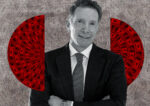Arbor Realty Trust made inroads on its delinquent loan book in the third quarter. But a new crop of late payers nearly erased the progress.
The net result for the REIT, a top bridge lender to multifamily syndicators, was to shave about $45 million off the $1 billion in delinquencies it reported in the previous quarter.
By taking properties from troubled borrowers and modifying the loans of others, it wiped out nearly $300 million of the delinquencies it began the third quarter with — “strong progress,” in the words of CEO Ivan Kaufman.
But as Arbor bailed out its boat, nearly as much water flowed in. It reported $225 million in new delinquencies for the three months ending Sept. 30.
On a Friday morning earnings call, Kaufman said Arbor had expected a “tough” third quarter and projects “additional delinquencies” to come. Still, the CEO said it could achieve “a continued decline in our total delinquencies.”
Late payments have become an albatross for Arbor as multifamily borrowers who tapped the lender’s short-term, floating-rate product have struggled to keep up with surging debt service.
One line of attack for the lender has been loan modifications. In the first quarter, Arbor modified 39 multifamily bridge loans to the tune of $1.9 billion by extending maturity dates and providing temporary rate relief to borrowers who paid down principal or bought new rate caps.
Arbor is still pursuing that strategy. It modified 24 loans totaling $1.2 billion in the third quarter, reporting that borrowers put up $43 million in fresh equity to cover past-due interest, pay down loans and buy interest rate caps — protection against rising rates.
About $250 million of those modifications targeted delinquent loans. Arbot said by year’s end it expects to modify another 10 percent of the $1 billion in delinquencies it posted in the second quarter.
The lender reported one pay-down in the third quarter of an $8 million loan and projected another $300 million or more would be paid off over the next few quarters.
In the meantime, Arbor expects to ramp up foreclosures. The firm seized $77 million in assets in the third quarter and expects to grab another $250 million in the fourth.
Arbor finished September with $128 million in the corresponding real estate-owned or REO category, up 47 percent year to date — overwhelmingly driven by multifamily.
Chief Financial Officer Paul Elenio pointed out that the firm broke out REOs as a separate line item in the quarter, characterizing foreclosure as a “strategy.”
Arbor isn’t operating all of the rental properties it has taken back. For some, it has found new sponsors to assume the debt and run them, Kaufman said.
In the third quarter, the lender found new operators for $20 million worth of assets of the $77 million it foreclosed on, recording that debt as a sale and a new loan on its balance sheet.
Despite the uptick in REOs, Elenio said Arbor hasn’t “really had any realized losses during the year,” apart from on one small loan. He explained that Arbor had loss reserves set aside for REOs, property which it has taken back at “fair value.”
“Until we dispose of those REO assets, we don’t have a gain or a loss,” Elenio said. That is, as long as they are on Arbor’s balance sheet, the lender doesn’t have to mark them to market. But it stands to reason that some are worth less than what Arbor lent against them.
For the second straight quarter, analysts on Arbor’s earnings call asked about a probe of its books by federal prosecutors and the FBI in New York. The investigation follows a series of reports by short-seller Viceroy Research claiming the lender vastly overstated the value of its assets, many of which are distressed.
Kaufman again declined to comment.
Throughout the call, the CEO focused on Arbor’s performance compared to rivals. The lender posted a slide deck showing a 28 percent increase in its book value per share and a 54 percent growth in its dividend since 2019, compared to negative change on average for its competitors.
“Most of our peers have cut their dividends substantially,” Kaufman said.
Amid those claims, KBW analyst Jade Rahmani asked about Arbor’s cash flow, noting that operating cash flow, excluding agency loan originations and loan sales, slipped to $68 million from $94 million quarter-over-quarter.
Rahmani said seasonality could account for some of that decline. “Typically you do have a pickup in the fourth quarter,” he said of cash flow.
“But it is below the dividend,” the analyst added, asking if Kaufman expected to be able to sustain its dividend.
Read more



“We do feel like we have adequate cash flow from many, many sources to cover the dividend,” the CEO said.
Arbor’s stock price was 3 percent higher at Friday’s open but gave back some of that gain during the day. It is up more than 20 percent in the past year but is about flat year-to-date.
